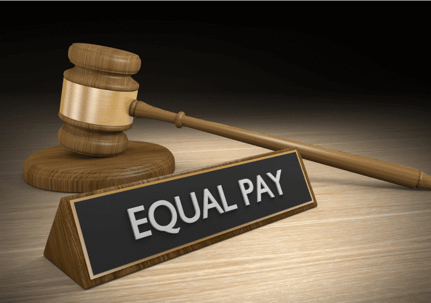An amendment to the Illinois Equal Pay Act of 2003 requires that, beginning March 23, 2024, Illinois employers with more than 100 employees in Illinois must certify compliance with the Equal Pay Act by obtaining an Equal Pay registration certificate from the state Department of Labor.
The amendment, signed by Governor Pritzker on March 23, 2021, requires private businesses to pay $150.00 filing fee and submit a statement of compliance with equal pay to the Department of Labor.
Along with the application, a business must submit a statement asserting:
- compliance with Title VII of the Civil Rights Act, the Equal Pay Act of 1963, the Illinois Human Rights Act, the Equal Wage Act, and the Equal Pay Act of 2003;
- that the average compensation for its female and minority employees is not consistently below the average compensation, as determined by rule by the United States Department of Labor, for its male and non-minority employees;
- that the business does not restrict genders to specific roles and makes employment decisions without regard to sex;
- how often the business reviews benefits and wages for disparities among protected and non-protected classes;
- the system used to determine employee compensation.
Businesses are required to submit materials and obtain a certificate every two years. New businesses must obtain the certificate within the first three years after beginning operations.
A business that fails to procure the Equal Pay registration certificate, or whose certificate is revoked, will be fined an amount equal to one percent of the business’s gross profits. Businesses with state contracts may have those contracts revoked as a penalty.
The attorneys at Reno & Zahm LLP will continue to monitor the impact this new law has on employers in Illinois. Please contact us with any questions.
The blog published by Reno & Zahm LLP is available for informational purposes only and is not considered legal advice on any subject matter. By viewing blog posts, the reader understands there is no attorney-client relationship between the reader and the blog publisher. The blog should not be used as a substitute for legal advice from a licensed professional attorney, and readers are urged to consult legal counsel on any specific legal questions concerning a specific situation.

